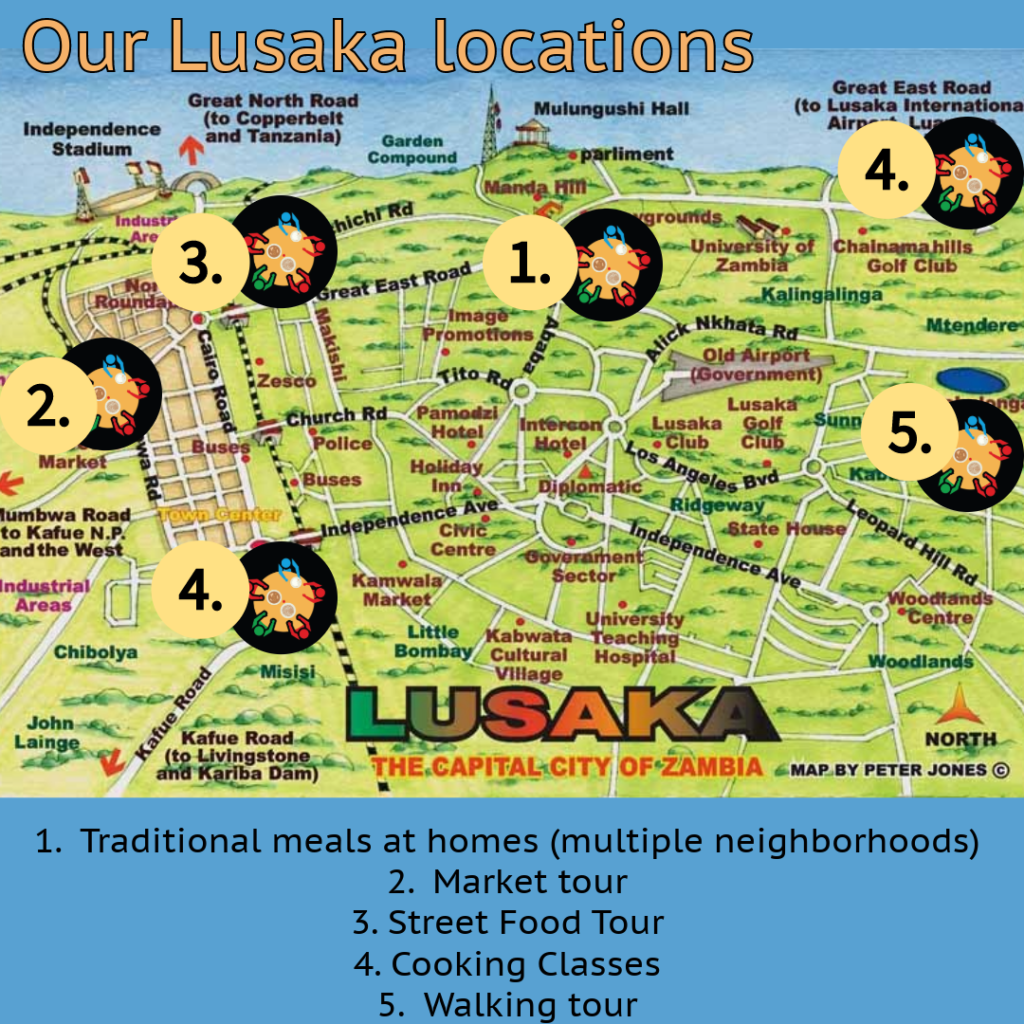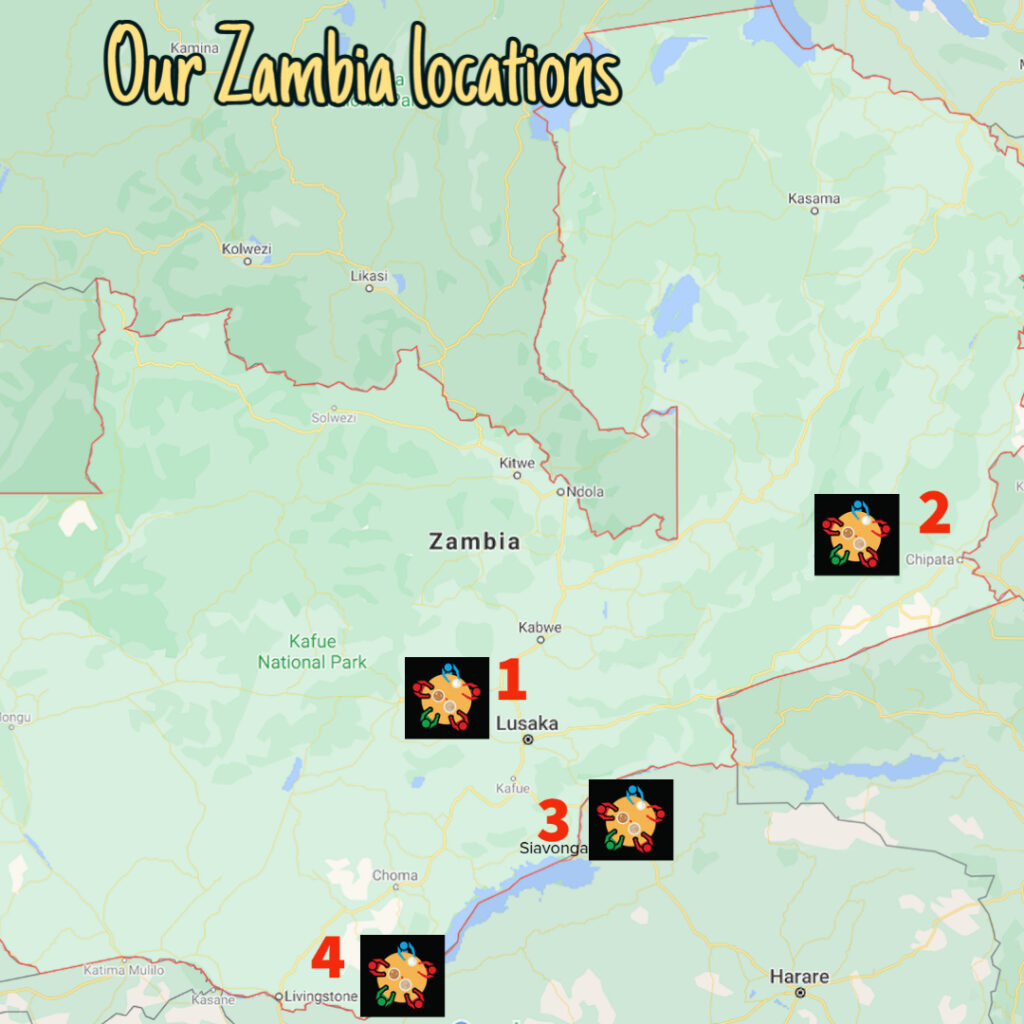Looking for something fun to do in Lusaka and Livingstone?
Jiranileo offers family-friendly activities centred around the amazing food culture of Zambia.
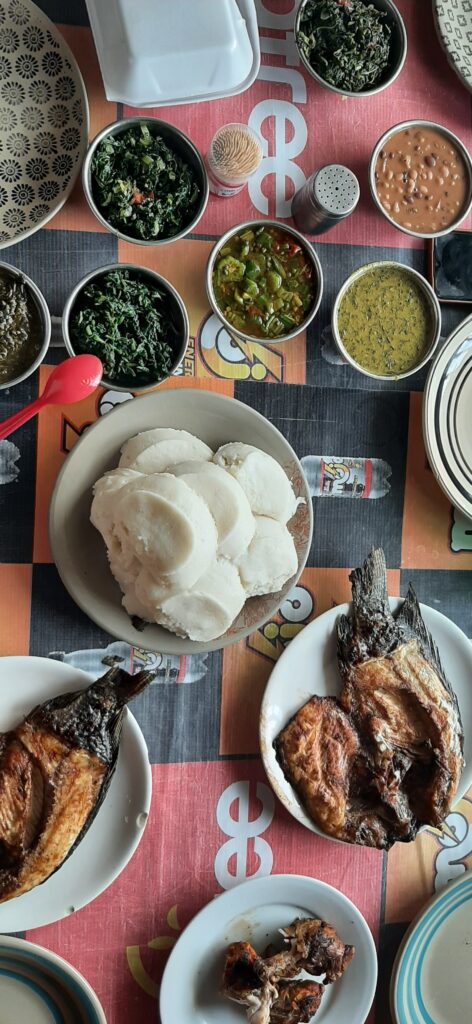
Eat with us! Want to enjoy the best Zambian traditional food? We offer lunch and dinner in local homes around Lusaka and Livingstone every day. You’ll try a variety of Zambian local foods based on what is in season. All meals are home-cooked a prepared with fresh ingredients. It’s like eating with your “jirani” (neighbor), “leo” (today). Meet some of our welcoming Zambian hosts on our Stories page, and scroll down this page to check out our Zambian cultural and cuisine tips. Vegetarian options are available, too.
Head to the streets with us! The ultimate Lusaka Street Food Experience takes you to a off-the-beaten track neighborhood in Lusaka, a place where Zambians love to convene for local food. Our youth guides will take you around the open-air braais (barbeques), help you order food (there are no menus), and as you eat together they will tell you the history of the Zambian matebeto culture.
Explore with us! Take our food market tour, available daily and led by our youth guides. You’ll tour the largest central food market in Zambia, where food comes from all provinces and multiple countries. We are always amazed at what we find in the market. After the tour, you’ll try over 20 local Zambian dishes at one of our favorite restaurants. Check our our tips for visiting markets on our Stories page.
Walk with us! In Lusaka, our guests rave about our neighborhood walking tour. You’ll take a guided tour in Bauleni, a vibrant compound neighborhood. After the walk, you’ll enjoy a Zambian traditional matebeto lunch in the community.
Cook with us! We offer cooking classes daily at local homes in Lusaka. These women are the masters of local cuisine and a lot of fun. You can choose from learning to cook either a traditional Zambian lunch or traditional Zambian snacks.
Network with us! Want to meet new people? Join one of our Passport meals in Lusaka, where you’ll meat and eat family style with 7-10 other people at the table. Each Passport meal is a different international cuisine, hosted by someone from that country who will explain the cuisine and food culture. In the past we have held Passport meals in Lusaka with themed meals from the Caribbean, North Africa, West Africa, and Asia. Check our booking page to see where Passport will take you this month.
Bookings through our website close 24-72 hours before the activity. Missed your chance? WhatsApp us at +260 760 123078 to see if we have a last minute seat for you.Looking
Previous slide
Next slide
ZAMBIAN Hospitality
Feel at home with our friendly hosts
Learn to greet in the seven official local languages of Zambia:
- Nyanja: Muli bwanji? (Ndili bwino)
- Bemba: Muli shani? (Ndifye bwino)
- Lozi: Muchwani? (Niketile)
- Tonga: Muli buti? (Kabotu)
- Luvale: Muli ngachili? (Nguli kanawa)
- Lunda: Mwakola mwani? (Nidi chachiwahi) or Mudi nd’ahi mwani? (Nidi chiwahi)
- Kaonde: Muji byepi? (Bulongotu)
Ready to eat? Learn these Zambian Culture, Cuisine, & Connection Tips
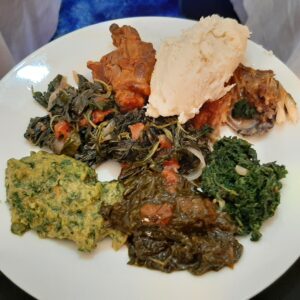
A typical Zambian meal consists of nshima (the staple food) with sides of cooked vegetables and meat or fish.
Nshima is finger food. It has two ingredients: water and flour – most commonly corn flour, but you might also be lucky and find nshima with cassava, sorghum, or millet flour. Grab off a small amount with your right hand and use it to soak up the other food (“relish”) on your plate.
Zambian food often has groundnuts (peanuts) and is often cooked in vegetable oil made with soy so it is very important to let us know if you have allergies.
Despite being a land-locked country, Zambia has a large fish farming sector. Fish are often dried for preservation, so you can often find fish served at homes that are far away from bodies of water.
There are a huge variety of green leafy vegetables in Zambian cuisine. Not all have English names, so feel free to ask the host to show you an uncooked leaf if you are curious to know what it looks like.
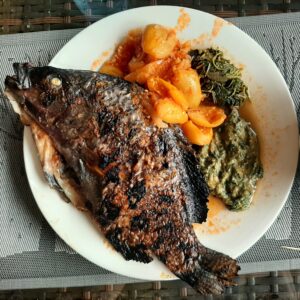
Although Zambia has many religions, it considers itself a Christian nation. Don’t be surprised if the host wants to pray before a meal or asks about your religion.
Zambians are proud of their tribal diversity. Feel free to ask your hosts about some of the jokes about “tribal cousins” and about their connections to their home villages.
Many Zambian languages have phrases that you can say when you are very full from eating. For example, in Nyanja, you can say: “Nakuta.”
